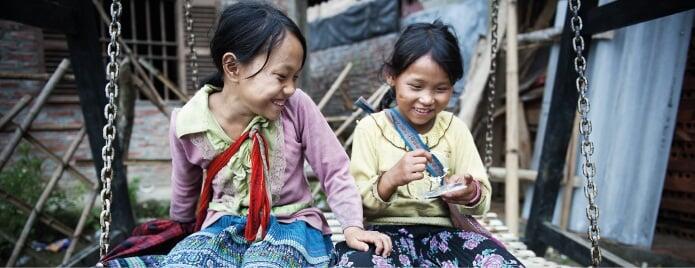HANOI, Viet Nam – "When I was inside your womb, I felt your care and love given to me each day. When you discovered I was not the son you and Dad had dreamed of, you suffered shame and ridicule from relatives and neighbours in the village."
"I realized your pain in having to decide to have a son or a daughter;
One day, you intended to leave me. But finally, you and Dad decided to let me live and grow.
I promised myself that I would always love, respect and reciprocate your and Dad's care and love for me..."
These are lyrics from "Story of a Girl Child", a song by Miss Vu Thao My, the 17 year-old winner of the popular TV singing competition The Voice Viet Nam 2013.
"This song has so much emotion. I can clearly feel its meaning. I think every single baby, especially girls, deserves to be born and cared for by its parents,” said Vu Thao My. “Like other daughters, I always love and respect my parents and I hope that I will bring all the best things to my parents in the future."
Produced by UNFPA in Viet Nam on the occasion of the Day of the Girl Child, marked internationally on 11 October, the song sheds light on the painful issue of son preference.
Asia’s “missing” girls
The imbalance of sex ratio at birth is a growing concern in some Asian countries, where some 117 million girls are “missing” from the region’s population as the number of male births increases.
In Viet Nam, the sex ratio imbalance rose from 106.2 boys per 100 girls in 2000 to 112.6 boys per 100 girls in 2013. If this trend continues unabated, it is estimated that by 2050 there will be between 2.3 to 4.3 million more men than women in the country.
The consequences of gender imbalances can be dire as many men face the prospect of not finding brides, creating the risks of potential social unrest, increased sexual violence against women, and trafficking.
There is ample evidence in Asia and in Viet Nam to show that the imbalance of sex ratio at birth is largely caused by gender-biased sex selection, which is driven by entrenched cultural norms favouring sons and placing a lower value on girls.
These deep-rooted traditions put enormous pressure on women to bear sons, which ultimately affects the overall social economic status of girls, as well as their sexual and reproductive lives, with serious implications for both their health and their survival.
"When women and girls have equal access to health care, education, and job opportunities as men and boys do, then women and girls will be able to do what men and boys are expected to do,” says Arthur Erken, UNFPA Representative in Viet Nam.
“Yet, women alone cannot address the issue; it must be done in partnership. Young men and boys must be encouraged to step forward as agents of necessary social and cultural change."


